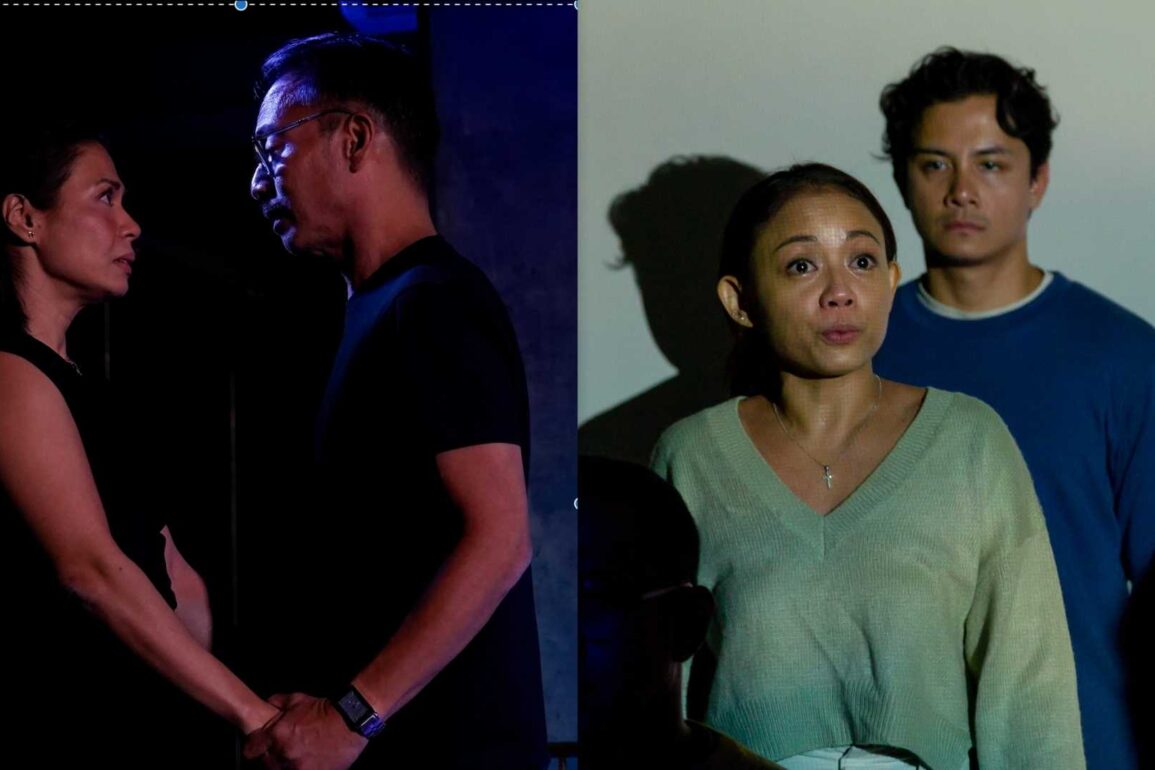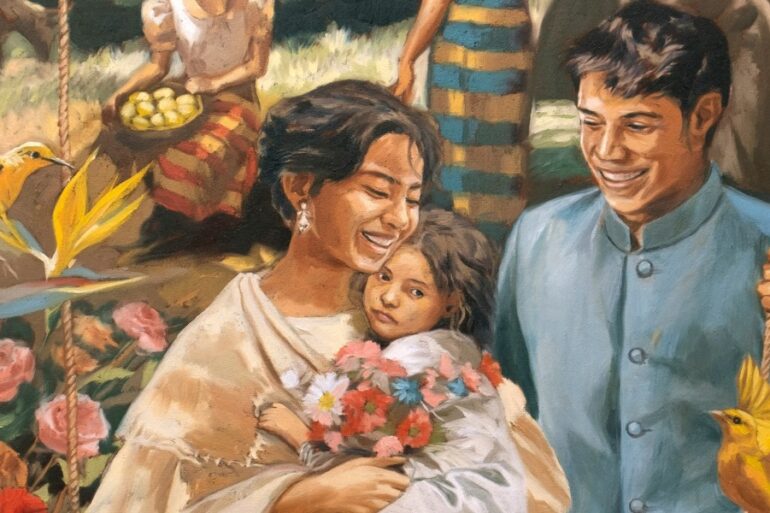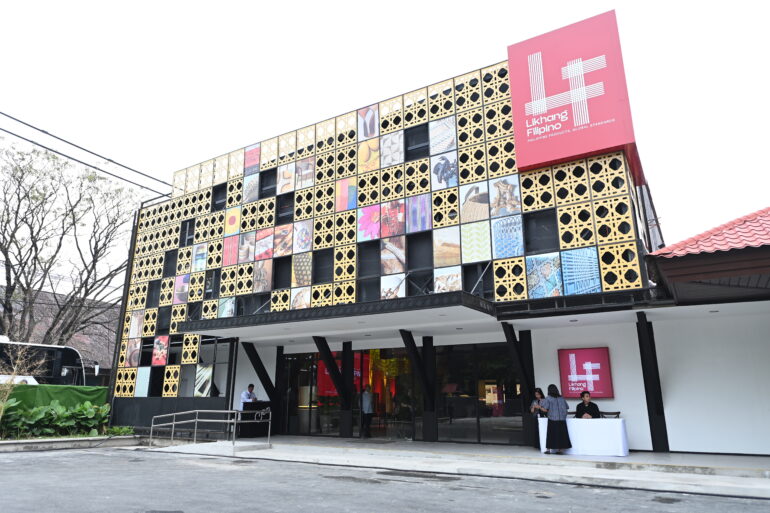What goes on behind closed doors and inside the human mind? Two plays—“Kaliwaan” and “3 Upuan”—explore these themes and their impact.
Much has been said and written about human frailty. How we are beings often driven by emotion, to the point of ignoring reason and logic, if only to indulge in the highs and wallow in the lows. These same emotions color the many decisions we make, leaving behind any impact, intended or otherwise, on the wayside. Somewhere in between lies all the things that go on behind closed doors, and the secrets we keep close to the vest.
Two plays—Kaliwaan and 3 Upuan—explore this brokenness by taking down the façade of the human experience.
A Filipino translation of Harold Pinter’s Betrayal (staged locally by Repertory Philippines in March 2024), Kaliwaan, directed by Loy Arcenas, tells the story of three people in the aftermath of an illicit affair. Emma, played by Missy Maramara, reflects on the end of a seven-year affair with Jerry (Nor Domingo), and its impact on her husband (and his best friend) Robert (Ron Capinding). 3 Upuan also takes an introspective look at the constructs of familial bonds, grief, and time through the eyes of three siblings, played by Jojit Lorenzo, JC Santos, Martha Comia. Both pieces come to be by way of award-winning playwright Guelan Luarca, who handled the translation of the former, while the latter is an original piece which he also directs.
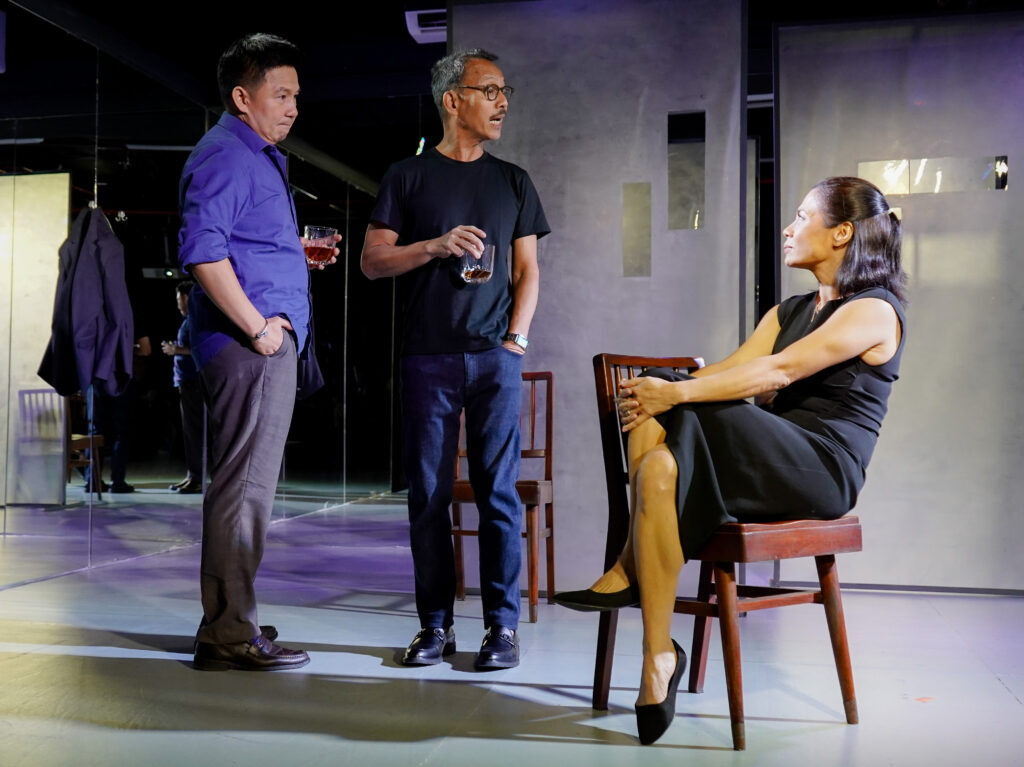


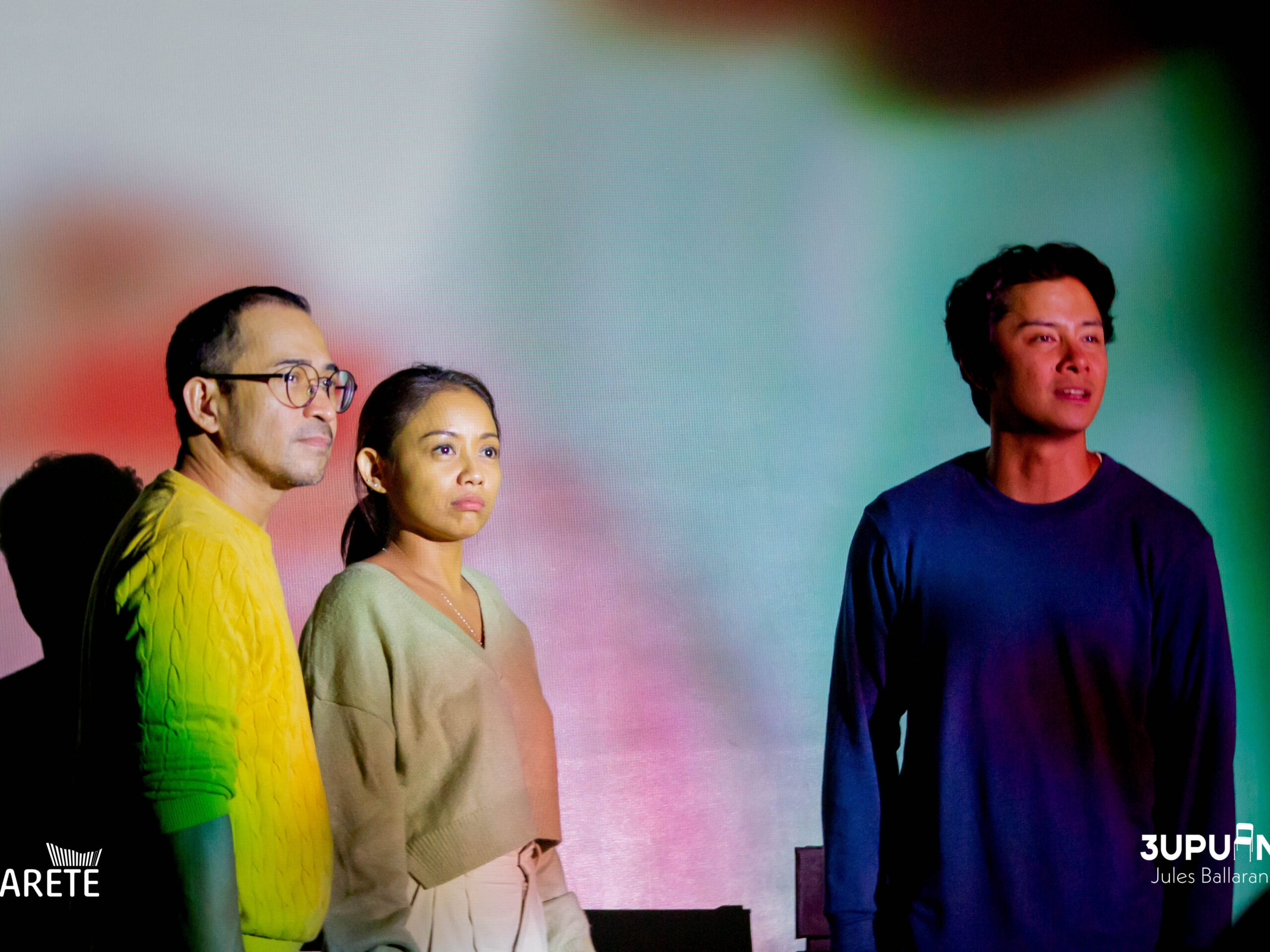


Three-handers both, these works soar on the back of its actors’ acting abilities, among the industry’s best. Subtle and understated, but not even a hair short on nuance and emotion. The sparse staging only had room for such, and much more would have been, well, too much.
The things we lost in the fire
The common thread between these two plays is they put all those emotions and thoughts we try to keep hidden into sharp focus. Dare we say, truths many of us may not be willing to admit to ourselves.
In Kaliwaan, infidelity is presented as the result of isolation and the very human need to be seen. As Emma and Jerry, Maramara and Domingo carefully navigate the fine line between giving in to their desires, while keeping up their own façade of a happy marriage. Playing opposite them is Capinding, who volleys between rage, frustration, and surrender as the blindsided spouse. As the story progresses, it unfolds through hushed conversations and veiled words, with the acting so subtle, as though all emotions simmering just beneath the surface.
In 3 Upuan, the same push-and-pull is felt between the three siblings, as they grapple with their own anxieties juxtaposed against what they share or hide from each other. There is a scene where Santos and Comia take a car ride to escape the grief of their father’s death. The conversation that ensues becomes an unloading of their personal heartbreaks, pain, and weaknesses —all hidden by shame. Each word is raw and real, landing with the heavy thud of human brokenness. The room was silent at this point, save for the quiet sniffles whispered among the seats.
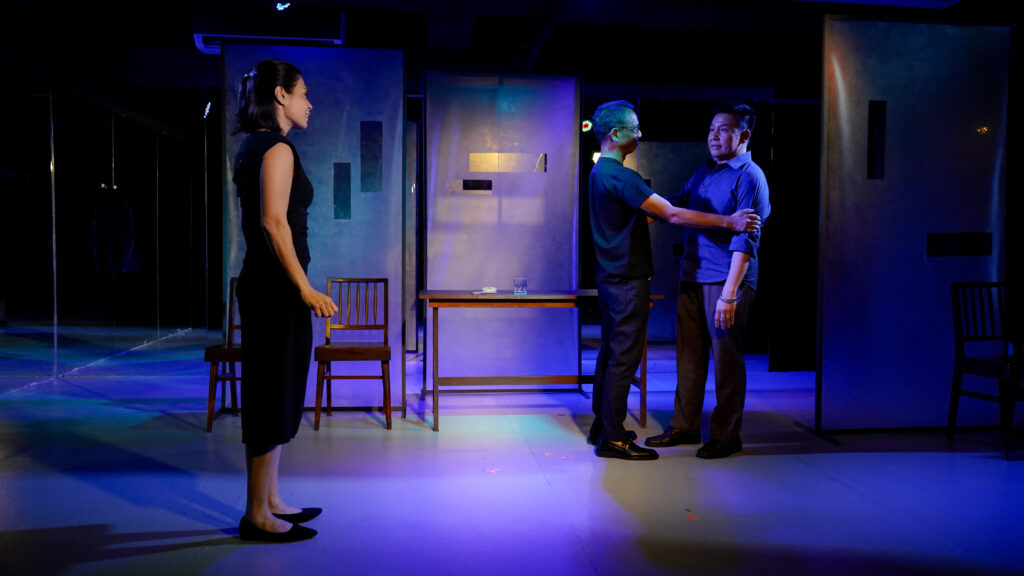


Time is also a construct that allows both plays to explore the different pathways the characters take. Sans the need for a time machine. Both stories take us backward and forward through days and years, offering a glimpse of how words, circumstance, and perspectives can be catalysts for both minute and seismic shifts in one’s life.
In 3 Upuan, the passing of the father sends one character reeling towards a seemingly inescapable and tragic choice. Much like how an illicit affair and hubris redefines the lives of Kaliwaan’s three characters, as we witness the beginning, middle, and end of the affair. It all begs the question – does time really heal all wounds? Because at the end of it all, all wounds do leave a mark.
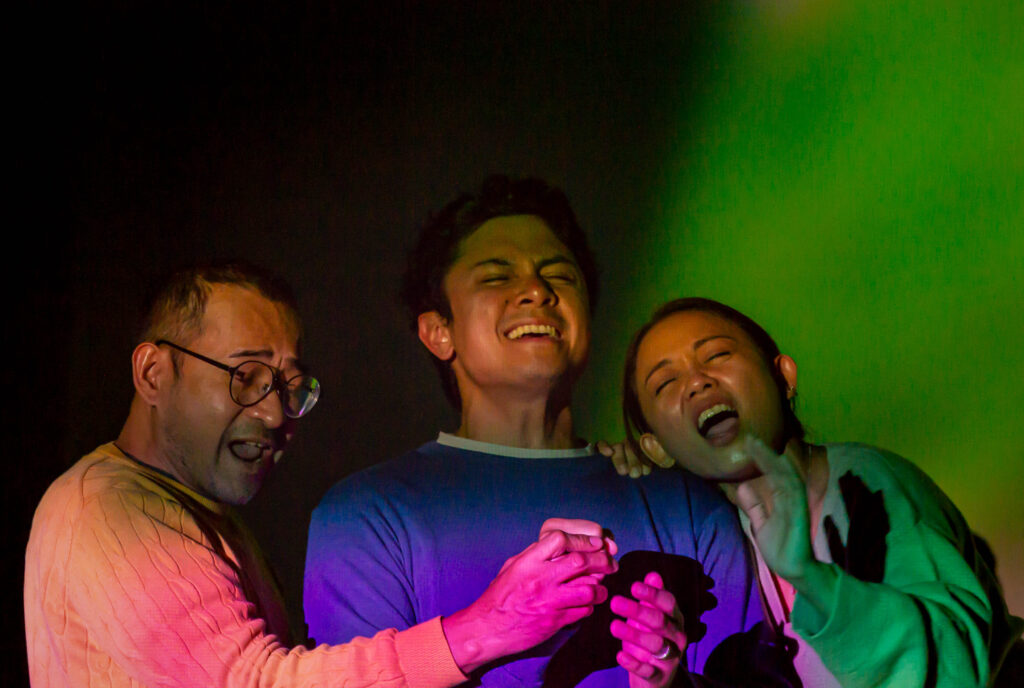


The intimate setting of The Mirror Studio Theater and Archivo 1984 lend themselves well to this kind of storytelling, putting the actors and the audience within spitting distance of each other, where the tiniest bit of overacting would have thrown everything out of balance. Sitting across them feels like you were the silent observer they invited in to witness the unravelling of their very lives.
A pen is mightier than…
Writer and playwright Guelan Valera-Luarca showcases his skill with the figurative pen in both works. He is thoughtful in his translation of Pinter’s work, while introspective in his writing of his original piece. With Kaliwaan, he deftly finds a way to weave in Filipino sentimentality, while staying faithful to the original text. His work on 3 Upuan takes a more personal turn, drawing inspiration from his own experiences with family and grief. Perhaps the only flaw, as in the case of the latter play, was its attempt to venture into a philosophical space toward the end, landing more as superfluous than thought-provoking.
In case there was still any doubt, these two pieces, along with the recent staging of Quomodo Desolata Es? Isang Dalamhati (his adaptation of Nick Joaquin’s Portrait Of An Artist As a Filipino), shows how his grasp of language delivers work that becomes a vehicle for emotional authenticity in its storytelling. Beyond Luarca’s writing, there is a richness that is added to the text just by being in Filipino (at least mostly for 3 Upuan). The hugot digs a little deeper. The interpretation it lends to context adds weight to the words, and you feel them a just a little bit more.
Related Story: ‘The Half-life of Marie Curie’ is a study in friendship—and the struggles of women in science
Related Story: Review: ‘Grace’ is riveting, provoking, and rightfully daring
Related Story: Repertory Philippines explores the thrills of love and yearning in 87th season
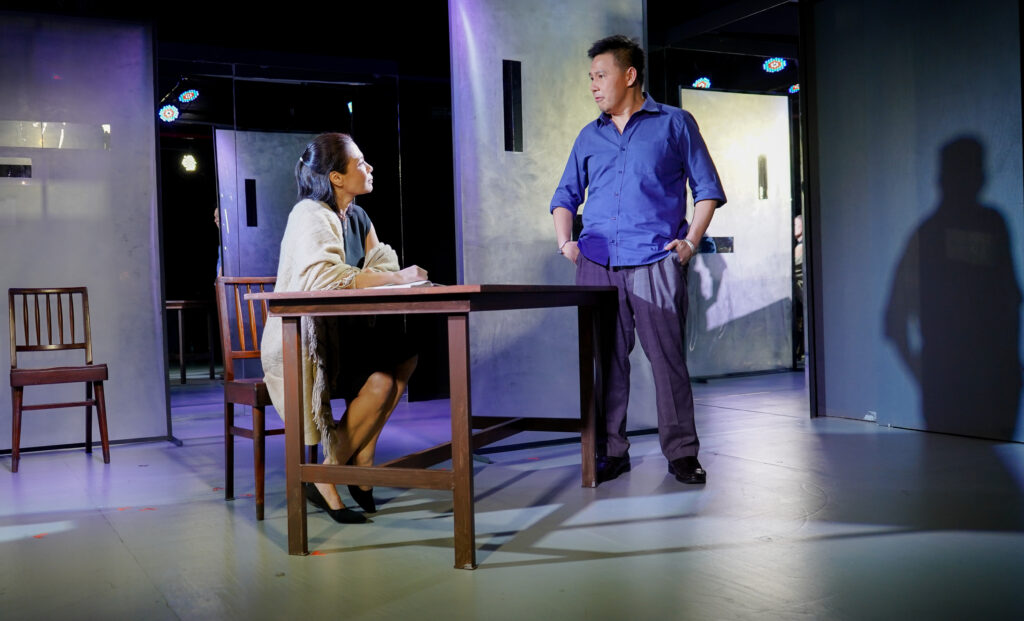


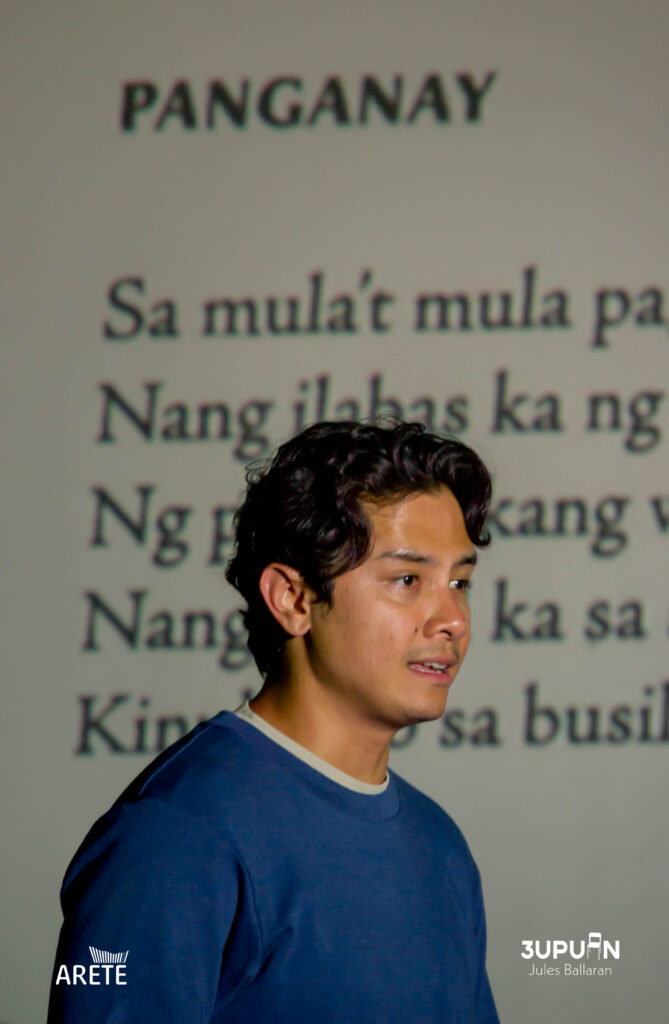


Both Kaliwaan and 3 Upuan dare their audiences to sit with discomfort. Whatever that means or looks like to you. To think about how our lives are so closely interwoven with each other. How, in the melee of life, we miss the subtle clues that hint at the hidden burdens we all carry.
There is a line in 3 Upuan, in a conversation between Lorenzo and Comia, which infers that family only really know each other in the years they are growing up together. Then adulthood happens and secrets become commonplace. There is a lot of truth there. The divide of separate lives slowly grows wider over time.
Both plays bring to light that feeling of isolation, in a literal or philosophical sense, as seen through the characters’ points-of view —driven by time, distance, and grief. When the lights turn back on, the real question they pose is this: “Do we really do all we can to see each other?”
Kaliwaan is a production of Stages Productions Specialists, Inc. presented by MusicArtes, Inc. The play has shows on August 29, 30, and 31 at The Mirror Theater Studio, SJG Centre, Kalayaan Avenue, Makati. For tickets, fill up the group’s Google form here.
3 Upuan, a production of Scene Change, in partnership with Areté and Archivo 1984, is on a limited run, with shows on August 30 and 31, at Archivo 1984 Gallery, Karrivin Plaza, Chino Roces Ave., Makati. While tickets may be sold out, you can make an inquiry through the Scene Change Instagram page.

